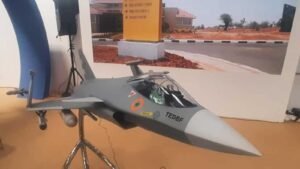BITS Pilani, Hyderabad, is on the verge of a remarkable achievement in the field of aerospace research and technology. The institution is poised to unveil one of the country’s largest wind tunnel facilities, a cutting-edge project that promises to be a game-changer in the realm of drone and autonomous flying vehicle research.
This state-of-the-art wind tunnel facility is expected to be completed by the next year, marking a significant milestone in India’s aerospace capabilities. The facility is purpose-built to recreate wind speeds of up to a staggering 220 kilometers per hour, providing a controlled environment for studying the dynamics of flight.
The wind tunnel’s capabilities extend far beyond its impressive wind speed capabilities. It serves as a gateway to invaluable insights into aerodynamics and flight dynamics. This facility will facilitate research on a wide array of subjects, ranging from full-scale drones and autonomous flying vehicles to automobiles, parachutes, and electric vehicle battery management systems.
Drones and Unmanned Aerial Vehicles (UAVs) are poised to revolutionize various sectors, including commercial, defense, and recreation. BITS Pilani recognizes the immense potential of these technologies and aims to establish itself as a hub for deep-tech entrepreneurship in this field. Prof. G. Sundar, Director of Hyderabad Campus, and Off-Campus Programs & Industry Engagement at BITS Pilani, emphasizes the role of the Wind Tunnel in nurturing startups and fostering innovation in the drone industry.
The Wind Tunnel facility will feature two distinct test sections. The first, an expansive 5m x 5m area, is designed for full-scale assessments of quadcopters, as well as the testing of automobile cooling systems. The second, a more compact 2m x 2m test section, has the capability to simulate winds at speeds of up to 220 kmph, allowing for precise and controlled experimentation.
AFI
Source link
#BITS #Pilani #Wind #Tunnel #Facility






